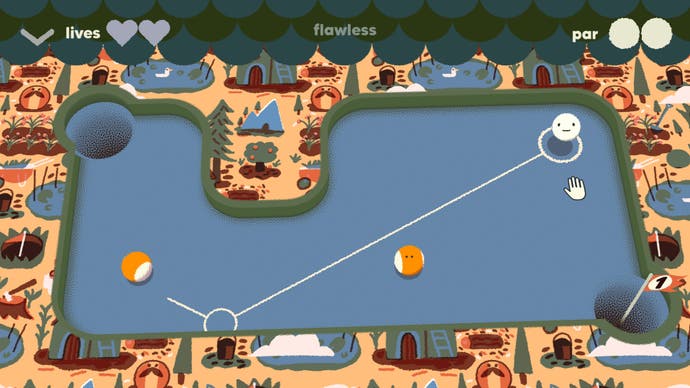I wish every game had Subpar Pool's card system
A la carte.
I love XCOM's Second Wave options almost as much as I love XCOM itself, which is quite a lot. Second Wave is a suite of design choices that were added to XCOM: Enemy Unknown in order to make the game harder, less predictable, a bit more weird. All of this, though, at the discretion of the player. Second Wave put a lot of power in the players' hands.
Powers like Damage Roulette, which does exactly what it sounds like: weapons would suddenly inflict a wide variety of different damages. New Economy, meanwhile, did something very similar for XCOM funding - you might get huge amounts of money from the council, and then you might get pretty much zip. Elsewhere, Not Created Equally gave rookies a random selection of initial stats, which made a surprisingly massive impact on the game, moment to moment. Onward and outward - those are just the first three options Second Wave offered.
I think I love Second Wave not just because I love chaos, and because some weird, difficult part of me wants a cruel game to be that bit crueller still. I love Second Wave because it feels like a great compliment to the player to be offered it. You, Second Wave suggests, are a player of great creativity and attention to detail. You're in the kitchen up to your elbows in spaghetti sauce. You leave Post-it notes to yourself about home bio-hacking projects and you do your own translations of the classics. None of this is remotely true of me, but I want it to be true, and fiddling with Second Wave makes me feel a bit more discerning, a bit more detail-oriented. It's gorgeous stuff.
And I thought of Second Wave this week when I played Subpar Pool, which is a very different game from XCOM, being an immediately thrilling blend of pool and golf, in which you knock balls around a table and try to get them into holes. Subpar Pool is beautiful stuff, and the more I played, the more I got drawn into its card system.
Its card system is proper magic. Basically, as you play you unlock variables for the game in the form of these cards. They might offer a new ball type for the table - a ball that seeks the cueball, or a really giant ball that moves more slowly, or a ball that splits in two or a ball that shatters. Equally, they might offer changes to the basic rules. They might throw more balls in, or give you bigger tables to play on. They might force you to take your turns within a set time limit cranking up the pressure and the sense of panic and priming you for hilarious forced errors.
This is lovely, and it's a great unlock system to give the game a bit of shape. But more than that, I love how it's implemented. You can have a number of different cards in play at once, so you're encouraged to tweak the game in numerous directions at the same time.
The end result reminds me a bit of playing Skyrim with random mods added. You load into a match and you don't know what you're going to be up against. I had a few runs of total chaos where I selected cards randomly, but them I started homing in on a few favourites, and looking for synergies, and combinations.
Pretty soon, I was up to my elbows in spaghetti sauce. Now, there's a reason for this: Subpar Pool is very easy even for someone like me to get their head around, so the barriers to screwing around with variables is much lower. But even so, just having these options in the game - as cards, as the toggles in Second Wave, made it much more approachable. I love mods, but I also fear them, because I know my incompetence with technical stuff can lead to real problems. I'm terrified of breaking things and not being able to fix them. But exposing a layer of mod-like choices to the players and doing it within the world of the game itself? That gives me access to a world that I am normally shut out of.
I wish more games would do this. Partly because it would simply make them more playful - once a game has added a big head mode or whatever you can tell its designers aren't taking themselves too thuddingly seriously. But party too because it would make me think about them more as games, allowing me to see beneath the superficial stuff to the world of rules and consequences and restrictions and thought processes that are driving everything. Richard Feynman - I think it was him - said you need to be able to explain an idea to someone in order to truly say you understand it. I have explained a number of games to people while only just scraping by in terms of understanding them. But games that allow me to meddle with the rules a bit myself - to tweak and see what happens, without needing to know any code or anything terrifying like that? These are games that become old friends. Because they reveal that tweaking the parameters is perhaps where the deepest of all games is found.


